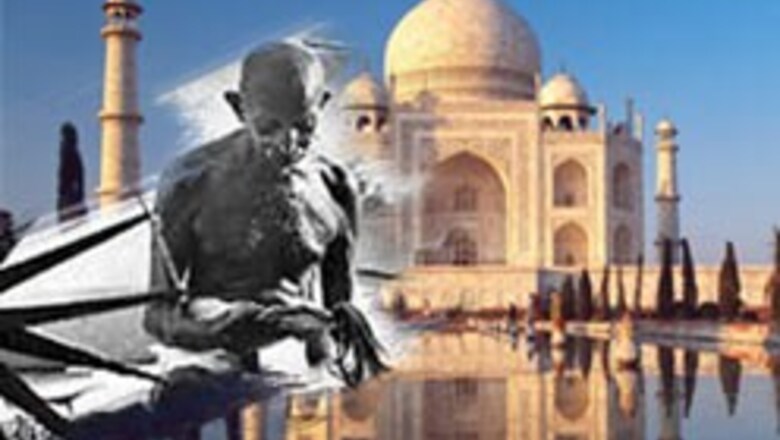
views
New Delhi: When they think of India they think of Gandhi and Taj Mahal, but when they think of Pakistan they think of nuclear, poverty and cricket, the people across the world said in a survey conducted by BBC.
In the survey conducted on the socio-economic perception on India and Pakistan after 60 years of independence from the British rule, the BBC found that the world also associated both countries with poverty.
In Pakistan's case, the respondents also associated it with the nuclear power.
The survey, conducted in collaboration with international research company Synovate across 20 countries in Europe, North and South America, Asia Pacific and Australia, questioned 12,670 respondents about their perceptions of India and Pakistan.
"It was conducted to coincide with the celebration surrounding India and Pakistan's 60th year of independence from Britain," the BBC said.
Interestingly, where French, Spaniards, Italians and Danes thought India topped in poverty on the planet, their Eastern counterparts Singaporeans, Japanese and Hong Kong nationals thought India to be a modern nation, high on development and technology.
British, Americans and Australians also voted in favour of India for its Bollywood, cricket and outsourcing industry. Asked to rank India from a global economic standpoint, the survey drew in some interesting responses from the respondents. Americans ranked India 10th from a global economic perspective, as did the British and Singaporean.
"India's economic progress is talked about across the world. It's interesting to see how people abroad perceive us," Dezma de Melo, senior manager research, BBC World, India, told PTI.
But surprisingly, Italians downed India as low as 100 in ranking from economic standpoint. "An interesting result, given that India's Congress party president - Sonia Gandhi - is of Italian origin," BBC noted.
As many as half of the respondents chose Hinduism as a predominant religion in India. But "unexpectedly" however, Buddhism ranked second as the principal religion in the country. BBC said it was "perhaps due to the increased media coverage and awareness in the West following, for example, Hollywood actor Richard Gere's public devotion to Buddhism."




















Comments
0 comment